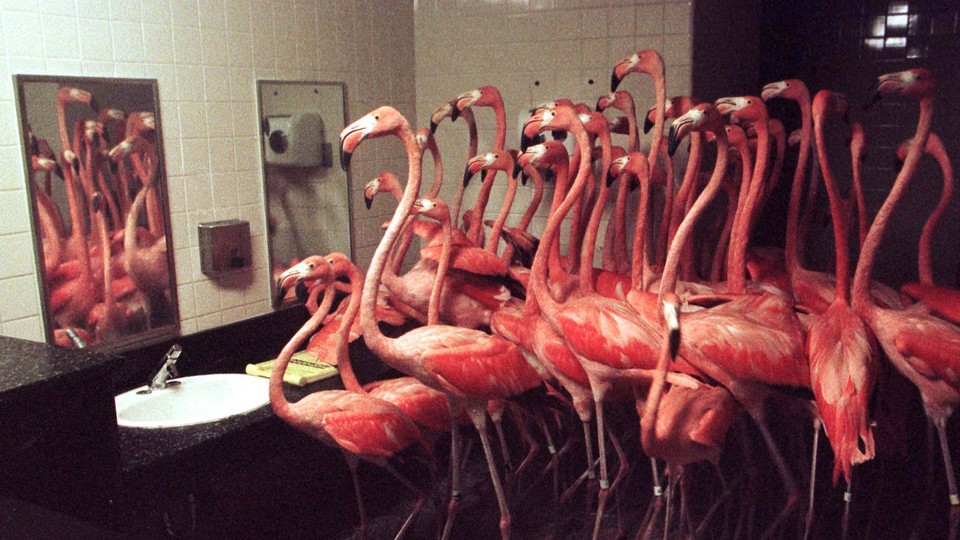The Animals Behaving in ‘Humanlike’ Ways
3 min read
This is an edition of The Wonder Reader, a newsletter in which our editors recommend a set of stories to spark your curiosity and fill you with delight. Sign up here to get it every Saturday morning.
Do dogs understand what’s funny? In the November 1910 issue of The Atlantic,the nature writer John Burroughs turned to this question as he tried to understand how animal minds really work. Humans laugh because they perceive “some sort of incongruity” that they find entertaining, Burroughs wrote; dogs, he argued, don’t have the intellectual capability to spot these incongruities. He conducted an informal experiment: “When one day I suddenly appeared before my dog in a suit of khaki, a garb in which he had never before seen me, did it excite his mirth, as it did that of some of my neighbors? On the contrary, it alarmed him.”
As Burroughs explores what’s knowable about the animal mind, he’s also aware of the limitations of his quest. “We have to describe that which is not man in terms of man, because we have no other terms, and thereby tell a kind of untruth,” he writes. “It is as when we put birdsongs or animal-calls into words, or write them on the musical scale—we only hint what we cannot express.”
The years since Burrough’s essay have been marked by astonishing findings in animal cognition. Many animals are more sophisticated than humans once gave them credit for. And some behave in ways that are remarkably humanlike: Evidence suggests chimps might recognize themselves in a mirror, elephants use namelike calls to identify one another, and some animals review their past to plan ahead for their future. If we can find these actions elsewhere in the animal kingdom, then what does humanlike really mean, anyway?
Elephants Are Doing Something Deeply Human
By Tove Danovich
They’re part of a growing list of animals that use namelike calls.
Read the article.
How First Contact With Whale Civilization Could Unfold
By Ross Andersen
If we can learn to speak their language, what should we say?
Read the article.
A Journey Into the Animal Mind
By Ross Andersen
What science can tell us about how other creatures experience the world
Read the article.
Still Curious?
- What mirrors tell us about animal minds: … including our own. (From 2017)
- The surprising complexity of animal memories: Chimpanzees, birds, and even rats have shown signs of reviewing their past to prepare for the future, Frans De Waal wrote in 2019.
Other Diversions
- Seven bedside-table books for when you can’t sleep
- The world needs more cheerful weirdos.
- The key to a good parent-child relationship? Low expectations.
P.S.

I recently asked readers to share a photo of something that sparks their sense of awe in the world. Isobel Stevenson sent a picture of the sunset just outside Columbia, Connecticut, taken this past spring. “I was on my way home from Hartford, and had been diverted from my usual route because of roadworks or an accident,” Stevenson wrote. “If not for the diversion, I never would have seen this, so I like it as a reminder that awe and wonder can be the unintended reward for small inconveniences.”
I’ll continue to feature your responses in the coming weeks. If you’d like to share, reply to this email with a photo and a short description so we can share your wonder with fellow readers in a future edition of this newsletter or on our website. Please include your name (initials are okay), age, and location. By doing so, you agree that The Atlantic has permission to publish your photo and publicly attribute the response to you, including your first name and last initial, age, and/or location that you share with your submission.
— Isabel



